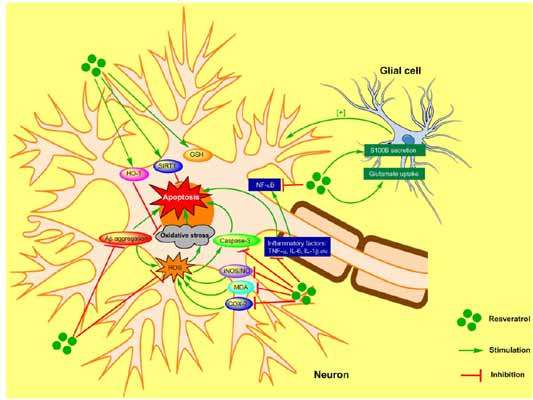Combination therapy may hold the key to slowing down Alzheimer's disease

Resveratrol is a naturally occurring polyphenolic phytochemical produced in several plants, especially grapes skin and seeds. One epidemiological study reported a positive association between moderate red wine consumption and a low incidence of cardiovascular disease, known as the "French Paradox." T
he neuroprotective effects of resveratrol for the treatment of Alzheimer's disease (AD) have been investigated in various in vitro and in vivo models of AD. Despite the high bioactivity of resveratrol in AD, there is poor bioavailability of resveratrol, that is, the concentrations required producing favourable biological effects in the brain and neuronal cells are insufficient to demonstrate efficacy in humans. Therefore, successful clinical application of resveratrol as a single 'take home' oral therapy alone presents a major challenge for the treatment of AD.
We propose herein a novel combination therapy consisting of an agent for chelating redox-active metals (Fe2+) and/or an antioxidant to reduce damage caused by residual oxygen free radicals, in addition to resveratrol, a modulator of AMPK and sirtuin pathways (nuclear transcription). The addition of resveratrol may have the capacity to increase activity of the NAD+- dependant deacetylases such as sirtuin family enzymes (e.g. SIRT1) and promote improved DNA repair by enhancing PARP enzyme activity through increased production of their essential substrate NAD+, and thus improve cell viability and longevity. A synergistic combination of a selected antioxidant substances, Fe2+ chelating agents and resveratrol may be expected to provide a more clinically successful treatment.
More information: Nady Braidy et al, Resveratrol as a Potential Therapeutic Candidate for the Treatment and Management of Alzheimer's Disease, Current Topics in Medicinal Chemistry (2016). DOI: 10.2174/1568026616666160204121431














